More Passion
Again from an e-mail. Names removed.
OK, you want the artistic scoop? You gots it.
WARNING TO OTHERS: SOME SPOILERS
Danke.
>Artistically, the celebration of violence, etc.;
A true concern. I am not a fan of Braveheart's violence, and have not been drawn to see some of his other films because I can well imagine the level of their violence. But I think it's perfectly valid to look at violence as we might look at sex within movies. The questions are:
1) What purpose does this serve? Is it included for gratuity's sake? Does it go beyond the bounds of good taste? What is the *intention* and what is the *execution* (no pun intended).
While in Braveheart, as well as let's say Gladiator, I felt that the violence was in some say intrinsic to the content of the film, the intention that came across was that of gratuity. Aristotle said it best (surprise surprise) in his "Poetics" when he distinguished between terror and horror. Terror is disgust at violence without any catharsis - that is shared release of emotion. Terror is violence for the sake of violence. Conversely, horror is bound up in the audience's understanding of the inevitability of tragedy. Aristotle held up "Oedipus Rex" as the prime example of horror: step by step we watch Oedipus arrive at his inevitable destruction. The gore isn't gratuitous, rather it is tragic and evokes in us a sense of catharsis.
I would say that "The Passion" manages to evince horror more than terror. Since pretty much everyone who goes to see this movie will be aware of the story to begin with, there is the requisite anticipation going in (rather, than, say "Dead Poets Society" where the suicide comes out of nowhere). We know the story already - whether we credit it is something else - but we KNOW the story.
Likewise, Gibson's attention to detail here does not go amiss. He is not revelling in Christ's torture, nor does he actually SHOW all that much. We never see chunks of Christ's skin flying across the screen as He is whipped with the cat-o-nine-tails. This isn't "Anne Rice's Interview With a Vampire Meets the Gospel of John." There won't be gobbules of anything a la Freddy Krugar landing on the lens. Quite a bit of the action is done via off-screen sound followed by an "after shot." A lot of the horror is done through reaction shots of various on-lookers.
Certainly, we see Christ become bloodier and bloodier, but again the INTENT is to recall His Most Precious Blood. Perhaps this has more meaning for a Catholic - I don't know - but Gibson certain films the blood in a sacramental way. Mary and Mary Magdalene wipe up the blood-stained floor of the scourging room after He is taken to the cells. At first, I was wondering why they were doing this and then I realized the sacramental significance: His Blood is so sacred, not one drop of it is meant to be spilt. Likewise, when Mary approaches Jesus as He is on the cross, she kisses His Feet, and her face comes away a little bloody. However, the first thing that crossed my mind was the poem about, "If He bent His Head to kiss you, His thorns would scrape your brow." Or more simply, "If you embrace the cross, you shouldn't be surprised if you get a few splinters."
THIS is the use of the horror that Gibson portrays. Perhaps - and this, I believe, is a very off-chance - someone with no grounding in theology at all might find some of it a bit more terrific than horrific. However, the movie is edited and filmed in such a way that I really don't think this will be a problem. Recall, too, that those who have seen the MATRIX know the basic story of Christ. In my humble opinion, the first and second requirements for horror a la Aristotle are fulfilled.
> theologically, the emphasis on the guilt of sinners (as though we somehow all deserved to be tortured to death too) rather than on Christ's triumph over death, etc.
I think you're approaching REACTION to PRESENTATION here. The Resurrection and Passion are interwoven: to meditate on one is to meditate on the other. But to answer specifically.
Gibson doesn't promote the idea that "we somehow all deserved to be tortured to death too" at all. Although you could argue that there are a few places where this is hinted at: when Dismas, the good thief, says as he says in the Gospels: "We deserve to die, we have done wrong. But He - He is sinless and has done nothing to deserve this. Remember me, Lord, when You enter Your kingdom." Or when Peter sees Mary right after he denies Jesus and shudders away from her touch, saying that he's not worthy to be near anyone (realize, he's seeing her as the perfect disciple of Christ, which he is not at this point!). But these two moments happen fairly early on and in the last ten minutes of the film. Inbetween, Gibson lets the action speak for itself.
Here's the question for you: have you pondered the Passion? And if you have, what feeling does it inspire in you? Immense gratitude? Awareness of your own sinfulness? Shame - but that good shame that drives us to confess and change our ways? All these things are what the cross is meant to inspire in us. And all these things "The Passion" inspires without ever really saying anything to that effect at all.
As I said before, the Passion and the Resurrection are part and parcel. When I pray the Sorrowful Mysteries or pray the Stations of the Cross, the Incarnation and the Resurrection are never far from my mind. So it should be when contemplating the Incarnation and the Resurrection separately. Why did God become Man? To die and rise again to save us from our sins. Why did Jesus die? Because only man can make up for man's sins, yet only the perfect sacrifice will do and no man is perfect; God is perfect yet He cannot die; thus God must become man. And only God can rise again and free us from our sins. Why did God rise again? To save us from our sins through His Incarnation and Resurrection. Is it any wonder if the Lord, our God is One God that to ponder any part of Him or His creation is to ponder the whole of Him? This, I firmly believe, comes across in "The Passion."
But what you seem to be concerned with is reaction more than presentation. This aversion to "feeling guilty" is perhaps difference between Protestant and Catholic theology(? - dunno). Let me offer this then: "The Passion" stirred in me, and I anticipate will stir in many, feelings of that "good guilt" - what one might call true humility, that is seeing oneself through the eyes of God. Standing truly before He who is Truth and realizing the good one's done AND the bad one's done, and clinging to the former and asking for forgiveness for the latter. I, personally, think that I and this world could do with much more true humility, don't you?
>Yet even he does not look at the film *as* a film -- he does not look at its place within the Mel Gibson ouevre, or at its place within the
increasingly graphic simulation of violence in recent films from _Saving Private Ryan_ to _Black Hawk Down_ and _We Were Soldiers_
I'd argue that that's because whether flawed here or there, whether I should have liked to have seen Jesus smile at this moment or offer the denial of Peter in this way, the end result far outweighs the petty artistic concerns. And I say this as the A No.-1 offender when it comes to nitpicking a movie. (Ask any of my household sisters. One of the rules of living a happy life is "Never see ANYTHING with a drama major." I'm a terror in the theatre.)
Obviously, I cannot convince you of a reaction. Nor am I desirous to add more to your fodder and determination to steel your heart. The simple fact is that if you're concerned that the film is postively affecting those who would otherwise nitpick, it might be an indication of the power of the film.
> Many of this film's supporters seem to think it dropped out of the heavens and has nothing to do with the artistic predilections of the people who made it -- and Mel Gibson himself encourages such thoughts when he says that the Holy Spirit made this film and he, Mel Gibson, was only "directing traffic".
But doesn't God work through our work? Isn't the very definition of "inspiraton" - "God breathed?" Don't we cling to a Bible which is itself particularly "God breathed"? I don't claim that Gibson has written a fifth Gospel, but I think it's rather proud to dismiss the hand of the Holy Spirit sight unseen.
>Perhaps, at some point in the future, people will learn to look at this film *within its context*. And by that, I don't mean the way that so many people have turned this film into a political football. I mean, maybe people will learn to think about this film critically, the same way they think about art critically in general. But oops, that's the problem, isn't it -- people don't think about art very much, do they?
No, they don't think about art very much. But this is very much an artistic film. And part of its context IS the reaction it inspires. Cannot every man have his masterpiece? Shall I ask, where do I fit into the oevre of God? Don't think I'm deifying "The Passion," but I think it's likely *you* will find yourself bending the knee more deeply to God (and we can never bend deep enough to Him) after seeing it. And that's something to be grateful for.
And a bit more...oh, the grammar gods are going to smite me! Pity me, mortals! I has ay-BUSED the lingwage!
A few more thunks! :)
>Technically, what they saw would have been a 'rough cut'; critics are only supposed to see the 'final cut', since we are, after all, reviewing the film for the benefit of viewers who will assume that *they* are seeing exactly what *we* saw.
Yes, but he's previewing for different reasons: to try to gain distributors and advocates in order to convince distributors that there's a market, etc. I know they were asking us questions about whether we thought there was a market among College-aged non-Christians. So, this isn't your same-old same-old sell. Consider it an independent film being shopped around to Christian Sundances (and/or establishing those Sundances to begin with)!
>(There *have* been exceptions to this, though -- I
didn't find out until too late that _Kate & Leopold_ had been given some last-minute revisions after the press screenings, and that the scenes with which I began and finished my review had been deleted from the film! I think both versions of the film are now available on the DVD, but I've never bothered to go back and see what all the differences were.)
Mainly stuff about Kate's ex being Leopold and Kate's descendent. I thought it tied the film together better, but it was removed because of the incestual nature of the intimation. Both versions are available on the DVD.
> A Catholic colleague of mine who is looking forward to this film says he wishes Gibson would shut up and let Caviezel, a devout *Roman* Catholic, be the public face of this movie, partly because he figures anything Caviezel says would be more interesting than Gibson's "rad-trad rantings".
Yes, I agree, Jim on the subject of the Passion is amazing. (He was on "The World Over" on EWTN a while ago - a Catholic station. Fwah.) But I think that Jim probably doesn't *want* to do be the public face just so that he can be obscured in the role of Jesus.
>So it *doesn't* make use of non-canonical material from Sister Anne
Catherine Emmerich's visions, despite Gibson's assertions that it would?
Sorry. I'm not familiar with her work - how is it anti-Semetic? Regardless, the film isn't.
>> . . . Veronica . . .
>Also not canonical. Not that there's anything wrong with that -- it's
perfectly acceptable to bring in other traditions.
LOL! I think this is where the Protestant/Catholic thing rears its head! Since for us we rely both on Scripture and Tradition - that is the witness written down and the witness *passed* down, this isn't as much a problem for me. Certainly, as the Church says, there is most likely one of the women of Jerusalem who wiped His Face, and we have also the Shroud (not that Veronica's veil is the Shroud, but that such a relic of Christ is not unknown). But for more on Veronica, look here:
http://www.newadvent.org/cathen/15362a.htm
>What do you make of Frank Rich's argument that it was Gibson *himself* who started this media ploy, since he was the first person to publicly raise the spectre of such a controversy when he appeared on Bill O'Reilly's show back in January? (Until then, no one had said anything, not in public.)
After meeting with the producer who has long worked with Gibson on his films, I think it's pretty safe to say that Gibson did not begin the controversy either directly or with intent to do so. Really, that's why they're shopping it around in the state it's in now. They want to perfect it as best as they can. I was able to meet some of the Legionnaries of Christ, too, who were with the crew while filming and it appears that the movie has been under attack from the beginning. Little wonder! They've experienced their own Agony in the Garden, as it were. No - I think you can rest assured that this isn't a "Bennifer" conspiracy.
>I dunno, I frankly wish there were *more* movies that respected Jesus'
humanity enough to *give* him a psychology,
I think you'll love the scene between Him and His mother, then, in flashback. There are moments of character beautifully interwoven - as I tried to explain, He is FULLY human and divine, and that comes across very well. The best I've seen to date, followed only by Ben-Hur which got the Divine part across but missed on the human.
>It seems to me that most movies about Jesus don't know what to do with him except to just gawk inawe. They are character-based dramas *without* a central character.
Again, just wait until you see it. It works. I was just trying to explain that his character formation isn't what we're used to in this post-Freudian world. Think Medieval character building and you've got a better idea. I can't explain it better than that than to say it's a difference of epistomologies.
>> . . . an androgynous Satan-figure who accompanies Christ's tormenters > through every stage of Jesus's passion.
>Also not in the gospels.
You can't cut it both ways. You want artistry. Here it is. Gibson physically portrays the devil to show that Christ's Passion is a struggle against evil, against sin, and OVER sin. You want metaphysics and metaphor in the movie - here it is. So Gibson gave an image to Satan for the purposes of film - that's the nature of film: things must be shown. Who hasn't in their own Agonies felt the evil one lurking near, whispering vileness in their ear? Who hasn't returned to the Garden of Eden and heard the vile hisses of the snake? Gibson makes manifest what is happening on a spiritual level - and makes manifest, too, Christ's continual triumph over sin, satan and death.
>Also not in the gospels (the emotional arc, that is; of course, Simon of Cyrene himself is there) -- but it sounds interesting!
See above! You want artistry? Voila!
>I dunno, this sounds a little too close to Gibson's assertion that he was divinely inspired on the movie set, to me.
See my other post. But as an author, haven't you ever felt inspired, and then gone back, seen what you'd written and seen God's Hand in it, making what you wrote so much better and deeper than you even realized? Gibson is giving the glory to God. Any good that comes out of the film isn't Gibson's genius, but God's glory.
> >. . . I found myself inspired with contrition.
>Hmmm. From what little I have learned of differences between the Eastern and Western churches, I suspect this is more of a Western thing -- the combination of gory images and feelings of guilt. (And by "Western", I mean not just Catholic, but Protestant churches too.)
And you don't feel guilt when you think of what Christ suffered for you? I'm crying out with Dismas, dearest! :)
Anywho, just a few more thoughts. My only sorrow is that there's so much speculation running around, rather than anticipation for seeing the thing itself. It's getting to be as bad as all the broo-ha-ha over LOTR:TROTK and what it "will be like." Honestly, just wait and see.
Mood: There's a HUGE bug in my room! What is it? Gah! Get out! Edit: A Daddy Long Legs has caught it. I am grateful.
Music: Mental Evanescence and the sound of Mom's prayer meeting group upstairs
Thought: Must learn more about Judaism.
Again from an e-mail. Names removed.
OK, you want the artistic scoop? You gots it.
WARNING TO OTHERS: SOME SPOILERS
Danke.
>Artistically, the celebration of violence, etc.;
A true concern. I am not a fan of Braveheart's violence, and have not been drawn to see some of his other films because I can well imagine the level of their violence. But I think it's perfectly valid to look at violence as we might look at sex within movies. The questions are:
1) What purpose does this serve? Is it included for gratuity's sake? Does it go beyond the bounds of good taste? What is the *intention* and what is the *execution* (no pun intended).
While in Braveheart, as well as let's say Gladiator, I felt that the violence was in some say intrinsic to the content of the film, the intention that came across was that of gratuity. Aristotle said it best (surprise surprise) in his "Poetics" when he distinguished between terror and horror. Terror is disgust at violence without any catharsis - that is shared release of emotion. Terror is violence for the sake of violence. Conversely, horror is bound up in the audience's understanding of the inevitability of tragedy. Aristotle held up "Oedipus Rex" as the prime example of horror: step by step we watch Oedipus arrive at his inevitable destruction. The gore isn't gratuitous, rather it is tragic and evokes in us a sense of catharsis.
I would say that "The Passion" manages to evince horror more than terror. Since pretty much everyone who goes to see this movie will be aware of the story to begin with, there is the requisite anticipation going in (rather, than, say "Dead Poets Society" where the suicide comes out of nowhere). We know the story already - whether we credit it is something else - but we KNOW the story.
Likewise, Gibson's attention to detail here does not go amiss. He is not revelling in Christ's torture, nor does he actually SHOW all that much. We never see chunks of Christ's skin flying across the screen as He is whipped with the cat-o-nine-tails. This isn't "Anne Rice's Interview With a Vampire Meets the Gospel of John." There won't be gobbules of anything a la Freddy Krugar landing on the lens. Quite a bit of the action is done via off-screen sound followed by an "after shot." A lot of the horror is done through reaction shots of various on-lookers.
Certainly, we see Christ become bloodier and bloodier, but again the INTENT is to recall His Most Precious Blood. Perhaps this has more meaning for a Catholic - I don't know - but Gibson certain films the blood in a sacramental way. Mary and Mary Magdalene wipe up the blood-stained floor of the scourging room after He is taken to the cells. At first, I was wondering why they were doing this and then I realized the sacramental significance: His Blood is so sacred, not one drop of it is meant to be spilt. Likewise, when Mary approaches Jesus as He is on the cross, she kisses His Feet, and her face comes away a little bloody. However, the first thing that crossed my mind was the poem about, "If He bent His Head to kiss you, His thorns would scrape your brow." Or more simply, "If you embrace the cross, you shouldn't be surprised if you get a few splinters."
THIS is the use of the horror that Gibson portrays. Perhaps - and this, I believe, is a very off-chance - someone with no grounding in theology at all might find some of it a bit more terrific than horrific. However, the movie is edited and filmed in such a way that I really don't think this will be a problem. Recall, too, that those who have seen the MATRIX know the basic story of Christ. In my humble opinion, the first and second requirements for horror a la Aristotle are fulfilled.
> theologically, the emphasis on the guilt of sinners (as though we somehow all deserved to be tortured to death too) rather than on Christ's triumph over death, etc.
I think you're approaching REACTION to PRESENTATION here. The Resurrection and Passion are interwoven: to meditate on one is to meditate on the other. But to answer specifically.
Gibson doesn't promote the idea that "we somehow all deserved to be tortured to death too" at all. Although you could argue that there are a few places where this is hinted at: when Dismas, the good thief, says as he says in the Gospels: "We deserve to die, we have done wrong. But He - He is sinless and has done nothing to deserve this. Remember me, Lord, when You enter Your kingdom." Or when Peter sees Mary right after he denies Jesus and shudders away from her touch, saying that he's not worthy to be near anyone (realize, he's seeing her as the perfect disciple of Christ, which he is not at this point!). But these two moments happen fairly early on and in the last ten minutes of the film. Inbetween, Gibson lets the action speak for itself.
Here's the question for you: have you pondered the Passion? And if you have, what feeling does it inspire in you? Immense gratitude? Awareness of your own sinfulness? Shame - but that good shame that drives us to confess and change our ways? All these things are what the cross is meant to inspire in us. And all these things "The Passion" inspires without ever really saying anything to that effect at all.
As I said before, the Passion and the Resurrection are part and parcel. When I pray the Sorrowful Mysteries or pray the Stations of the Cross, the Incarnation and the Resurrection are never far from my mind. So it should be when contemplating the Incarnation and the Resurrection separately. Why did God become Man? To die and rise again to save us from our sins. Why did Jesus die? Because only man can make up for man's sins, yet only the perfect sacrifice will do and no man is perfect; God is perfect yet He cannot die; thus God must become man. And only God can rise again and free us from our sins. Why did God rise again? To save us from our sins through His Incarnation and Resurrection. Is it any wonder if the Lord, our God is One God that to ponder any part of Him or His creation is to ponder the whole of Him? This, I firmly believe, comes across in "The Passion."
But what you seem to be concerned with is reaction more than presentation. This aversion to "feeling guilty" is perhaps difference between Protestant and Catholic theology(? - dunno). Let me offer this then: "The Passion" stirred in me, and I anticipate will stir in many, feelings of that "good guilt" - what one might call true humility, that is seeing oneself through the eyes of God. Standing truly before He who is Truth and realizing the good one's done AND the bad one's done, and clinging to the former and asking for forgiveness for the latter. I, personally, think that I and this world could do with much more true humility, don't you?
>Yet even he does not look at the film *as* a film -- he does not look at its place within the Mel Gibson ouevre, or at its place within the
increasingly graphic simulation of violence in recent films from _Saving Private Ryan_ to _Black Hawk Down_ and _We Were Soldiers_
I'd argue that that's because whether flawed here or there, whether I should have liked to have seen Jesus smile at this moment or offer the denial of Peter in this way, the end result far outweighs the petty artistic concerns. And I say this as the A No.-1 offender when it comes to nitpicking a movie. (Ask any of my household sisters. One of the rules of living a happy life is "Never see ANYTHING with a drama major." I'm a terror in the theatre.)
Obviously, I cannot convince you of a reaction. Nor am I desirous to add more to your fodder and determination to steel your heart. The simple fact is that if you're concerned that the film is postively affecting those who would otherwise nitpick, it might be an indication of the power of the film.
> Many of this film's supporters seem to think it dropped out of the heavens and has nothing to do with the artistic predilections of the people who made it -- and Mel Gibson himself encourages such thoughts when he says that the Holy Spirit made this film and he, Mel Gibson, was only "directing traffic".
But doesn't God work through our work? Isn't the very definition of "inspiraton" - "God breathed?" Don't we cling to a Bible which is itself particularly "God breathed"? I don't claim that Gibson has written a fifth Gospel, but I think it's rather proud to dismiss the hand of the Holy Spirit sight unseen.
>Perhaps, at some point in the future, people will learn to look at this film *within its context*. And by that, I don't mean the way that so many people have turned this film into a political football. I mean, maybe people will learn to think about this film critically, the same way they think about art critically in general. But oops, that's the problem, isn't it -- people don't think about art very much, do they?
No, they don't think about art very much. But this is very much an artistic film. And part of its context IS the reaction it inspires. Cannot every man have his masterpiece? Shall I ask, where do I fit into the oevre of God? Don't think I'm deifying "The Passion," but I think it's likely *you* will find yourself bending the knee more deeply to God (and we can never bend deep enough to Him) after seeing it. And that's something to be grateful for.
And a bit more...oh, the grammar gods are going to smite me! Pity me, mortals! I has ay-BUSED the lingwage!
A few more thunks! :)
>Technically, what they saw would have been a 'rough cut'; critics are only supposed to see the 'final cut', since we are, after all, reviewing the film for the benefit of viewers who will assume that *they* are seeing exactly what *we* saw.
Yes, but he's previewing for different reasons: to try to gain distributors and advocates in order to convince distributors that there's a market, etc. I know they were asking us questions about whether we thought there was a market among College-aged non-Christians. So, this isn't your same-old same-old sell. Consider it an independent film being shopped around to Christian Sundances (and/or establishing those Sundances to begin with)!
>(There *have* been exceptions to this, though -- I
didn't find out until too late that _Kate & Leopold_ had been given some last-minute revisions after the press screenings, and that the scenes with which I began and finished my review had been deleted from the film! I think both versions of the film are now available on the DVD, but I've never bothered to go back and see what all the differences were.)
Mainly stuff about Kate's ex being Leopold and Kate's descendent. I thought it tied the film together better, but it was removed because of the incestual nature of the intimation. Both versions are available on the DVD.
> A Catholic colleague of mine who is looking forward to this film says he wishes Gibson would shut up and let Caviezel, a devout *Roman* Catholic, be the public face of this movie, partly because he figures anything Caviezel says would be more interesting than Gibson's "rad-trad rantings".
Yes, I agree, Jim on the subject of the Passion is amazing. (He was on "The World Over" on EWTN a while ago - a Catholic station. Fwah.) But I think that Jim probably doesn't *want* to do be the public face just so that he can be obscured in the role of Jesus.
>So it *doesn't* make use of non-canonical material from Sister Anne
Catherine Emmerich's visions, despite Gibson's assertions that it would?
Sorry. I'm not familiar with her work - how is it anti-Semetic? Regardless, the film isn't.
>> . . . Veronica . . .
>Also not canonical. Not that there's anything wrong with that -- it's
perfectly acceptable to bring in other traditions.
LOL! I think this is where the Protestant/Catholic thing rears its head! Since for us we rely both on Scripture and Tradition - that is the witness written down and the witness *passed* down, this isn't as much a problem for me. Certainly, as the Church says, there is most likely one of the women of Jerusalem who wiped His Face, and we have also the Shroud (not that Veronica's veil is the Shroud, but that such a relic of Christ is not unknown). But for more on Veronica, look here:
http://www.newadvent.org/cathen/15362a.htm
>What do you make of Frank Rich's argument that it was Gibson *himself* who started this media ploy, since he was the first person to publicly raise the spectre of such a controversy when he appeared on Bill O'Reilly's show back in January? (Until then, no one had said anything, not in public.)
After meeting with the producer who has long worked with Gibson on his films, I think it's pretty safe to say that Gibson did not begin the controversy either directly or with intent to do so. Really, that's why they're shopping it around in the state it's in now. They want to perfect it as best as they can. I was able to meet some of the Legionnaries of Christ, too, who were with the crew while filming and it appears that the movie has been under attack from the beginning. Little wonder! They've experienced their own Agony in the Garden, as it were. No - I think you can rest assured that this isn't a "Bennifer" conspiracy.
>I dunno, I frankly wish there were *more* movies that respected Jesus'
humanity enough to *give* him a psychology,
I think you'll love the scene between Him and His mother, then, in flashback. There are moments of character beautifully interwoven - as I tried to explain, He is FULLY human and divine, and that comes across very well. The best I've seen to date, followed only by Ben-Hur which got the Divine part across but missed on the human.
>It seems to me that most movies about Jesus don't know what to do with him except to just gawk inawe. They are character-based dramas *without* a central character.
Again, just wait until you see it. It works. I was just trying to explain that his character formation isn't what we're used to in this post-Freudian world. Think Medieval character building and you've got a better idea. I can't explain it better than that than to say it's a difference of epistomologies.
>> . . . an androgynous Satan-figure who accompanies Christ's tormenters > through every stage of Jesus's passion.
>Also not in the gospels.
You can't cut it both ways. You want artistry. Here it is. Gibson physically portrays the devil to show that Christ's Passion is a struggle against evil, against sin, and OVER sin. You want metaphysics and metaphor in the movie - here it is. So Gibson gave an image to Satan for the purposes of film - that's the nature of film: things must be shown. Who hasn't in their own Agonies felt the evil one lurking near, whispering vileness in their ear? Who hasn't returned to the Garden of Eden and heard the vile hisses of the snake? Gibson makes manifest what is happening on a spiritual level - and makes manifest, too, Christ's continual triumph over sin, satan and death.
>Also not in the gospels (the emotional arc, that is; of course, Simon of Cyrene himself is there) -- but it sounds interesting!
See above! You want artistry? Voila!
>I dunno, this sounds a little too close to Gibson's assertion that he was divinely inspired on the movie set, to me.
See my other post. But as an author, haven't you ever felt inspired, and then gone back, seen what you'd written and seen God's Hand in it, making what you wrote so much better and deeper than you even realized? Gibson is giving the glory to God. Any good that comes out of the film isn't Gibson's genius, but God's glory.
> >. . . I found myself inspired with contrition.
>Hmmm. From what little I have learned of differences between the Eastern and Western churches, I suspect this is more of a Western thing -- the combination of gory images and feelings of guilt. (And by "Western", I mean not just Catholic, but Protestant churches too.)
And you don't feel guilt when you think of what Christ suffered for you? I'm crying out with Dismas, dearest! :)
Anywho, just a few more thoughts. My only sorrow is that there's so much speculation running around, rather than anticipation for seeing the thing itself. It's getting to be as bad as all the broo-ha-ha over LOTR:TROTK and what it "will be like." Honestly, just wait and see.
Mood: There's a HUGE bug in my room! What is it? Gah! Get out! Edit: A Daddy Long Legs has caught it. I am grateful.
Music: Mental Evanescence and the sound of Mom's prayer meeting group upstairs
Thought: Must learn more about Judaism.
 The sporadic ramblings of Emily C. A. Snyder - devoted to God, theatre, writing, and much randominity.
The sporadic ramblings of Emily C. A. Snyder - devoted to God, theatre, writing, and much randominity.
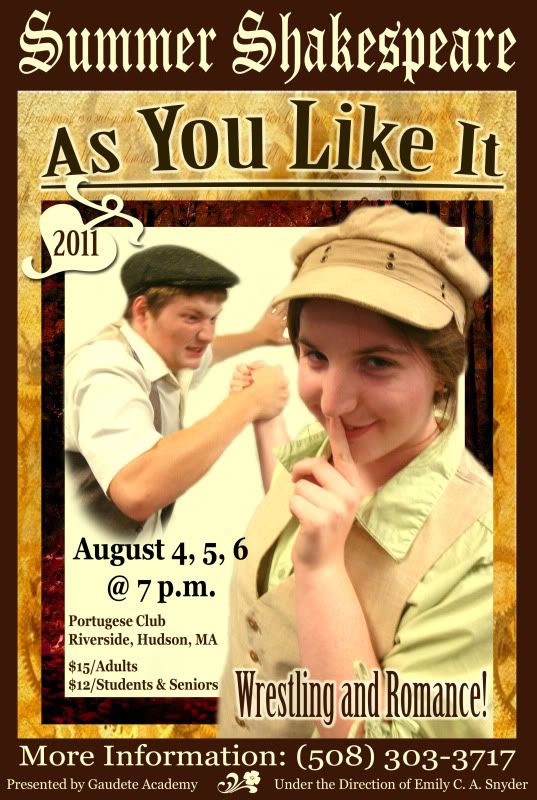
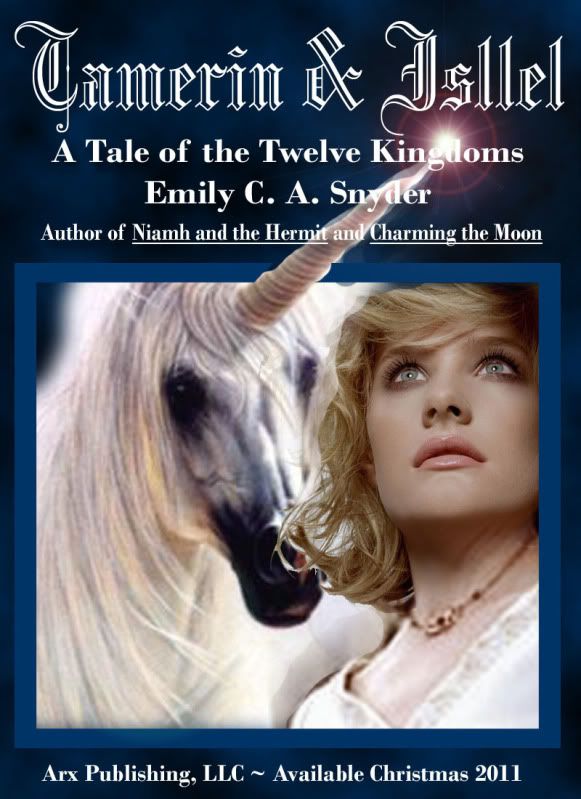
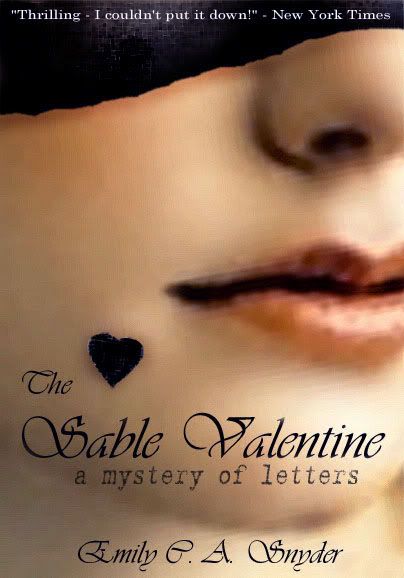






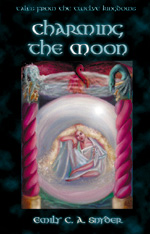

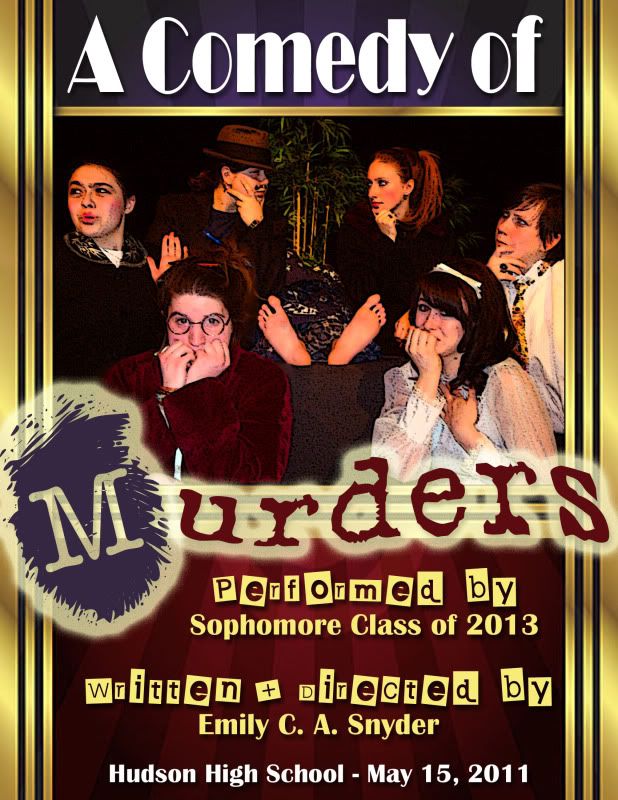
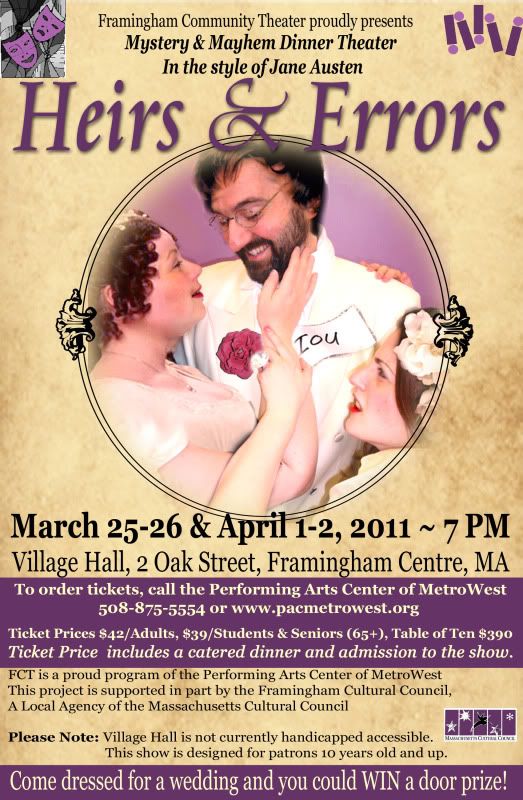

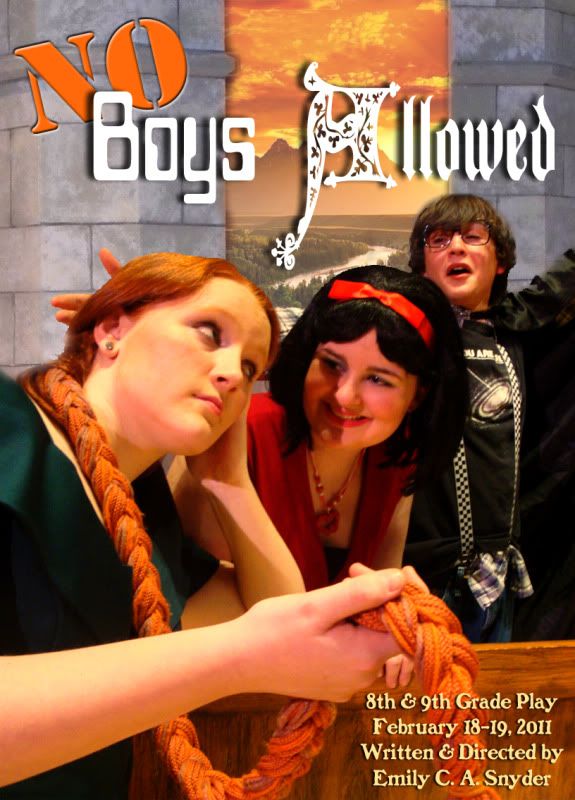
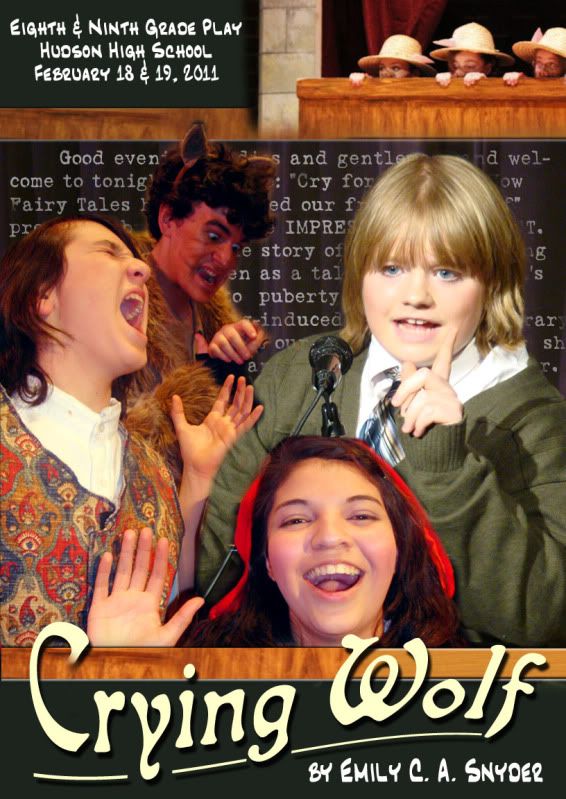
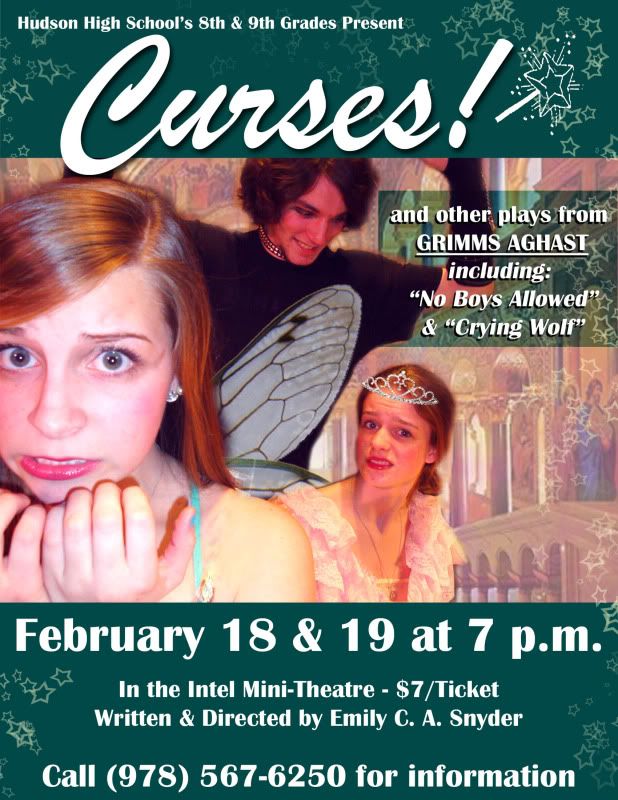
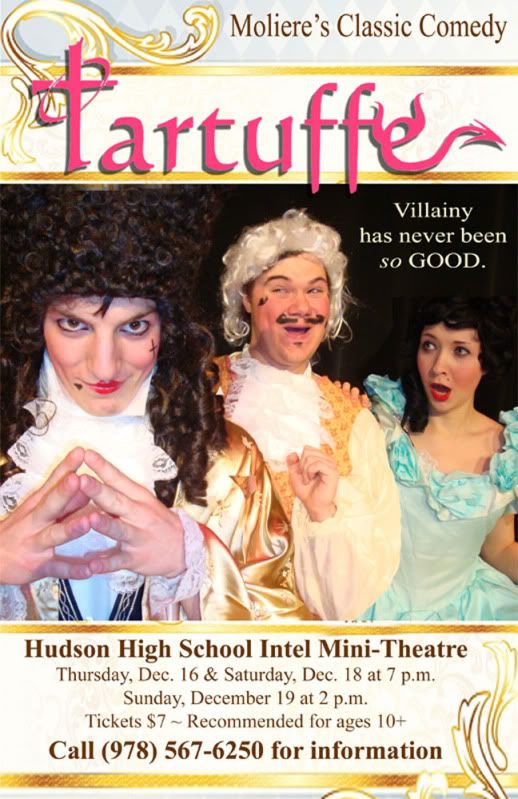
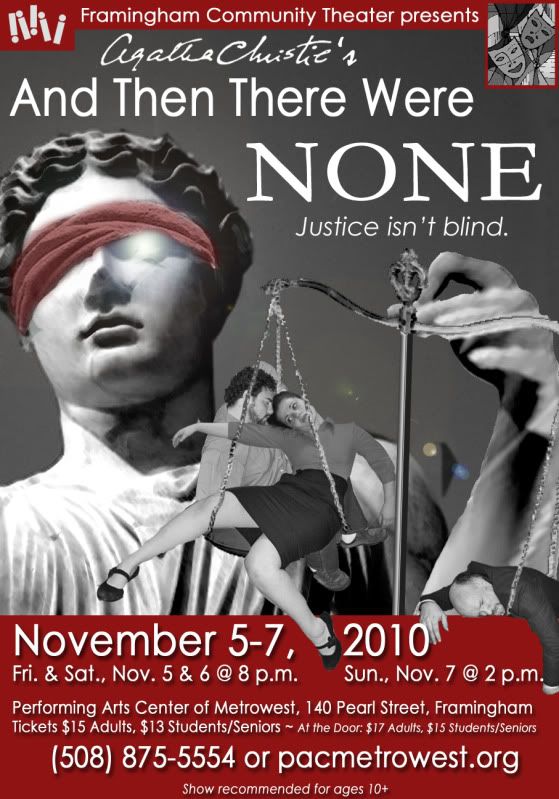
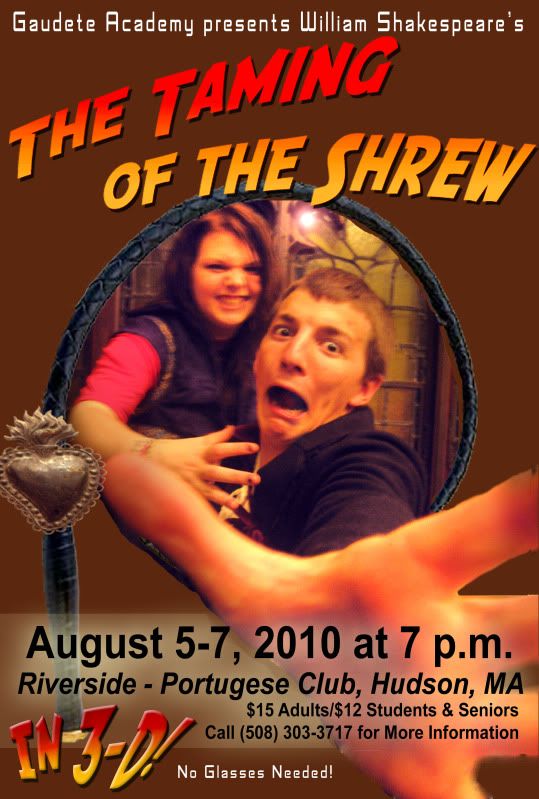

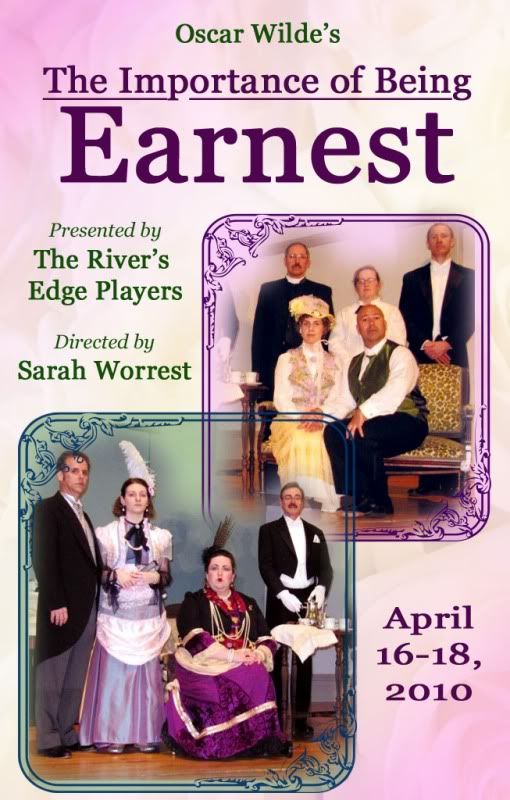
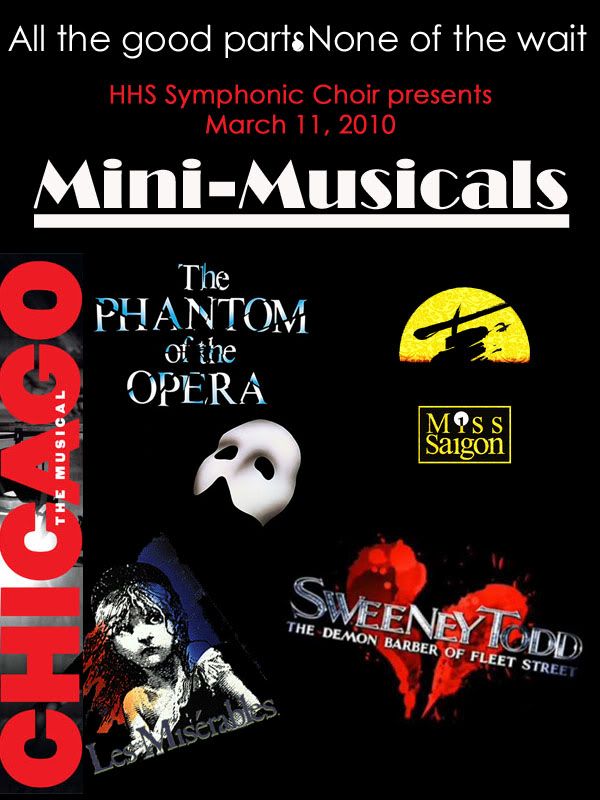

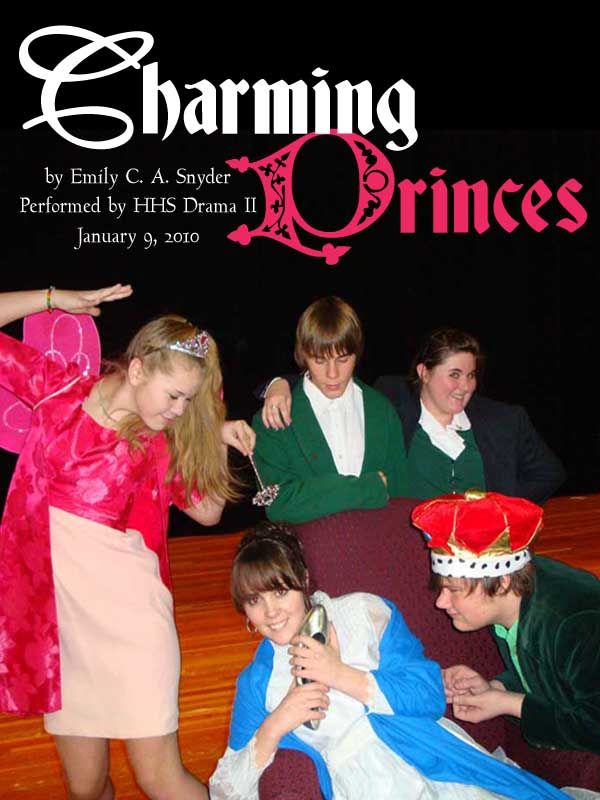

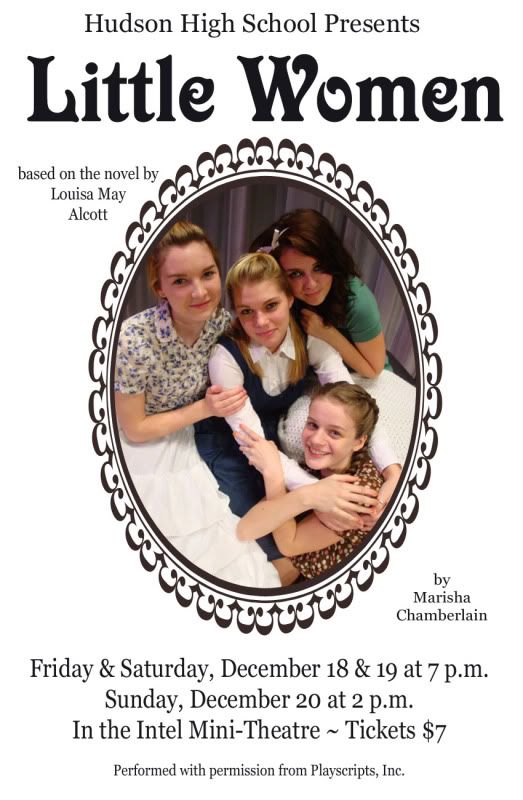
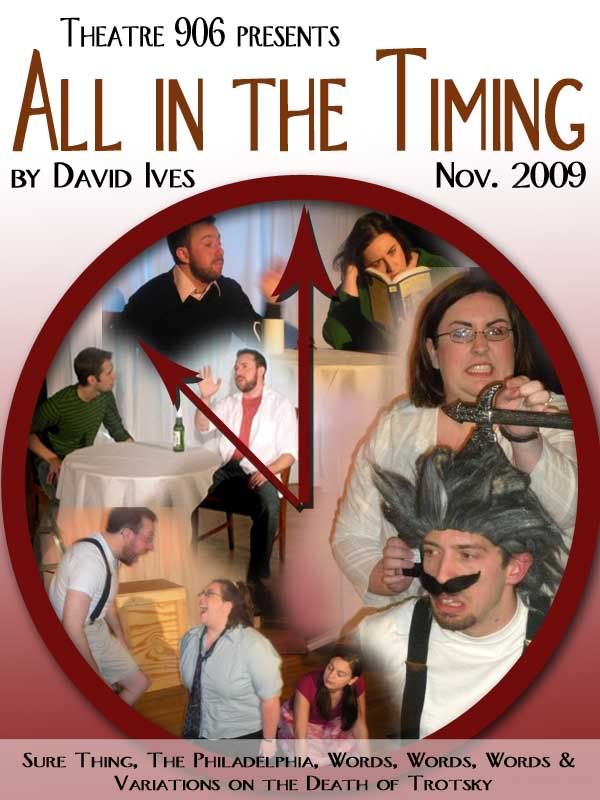
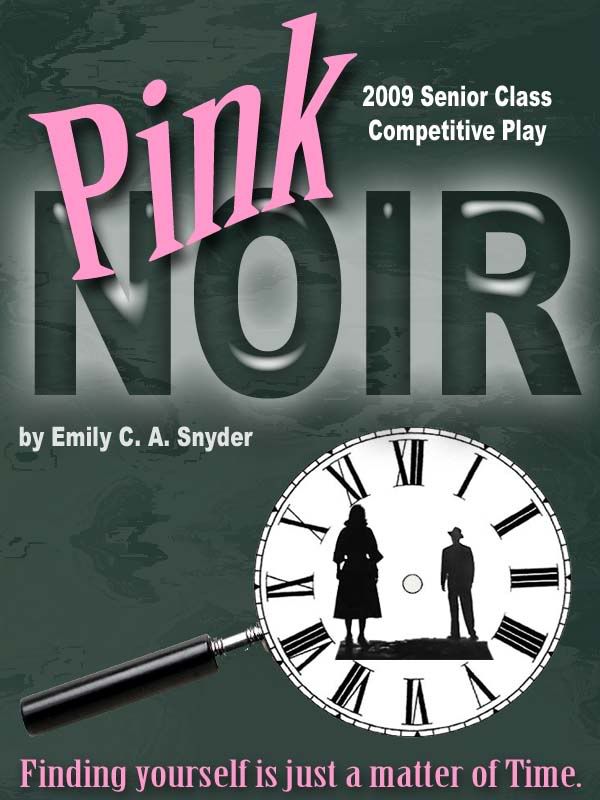
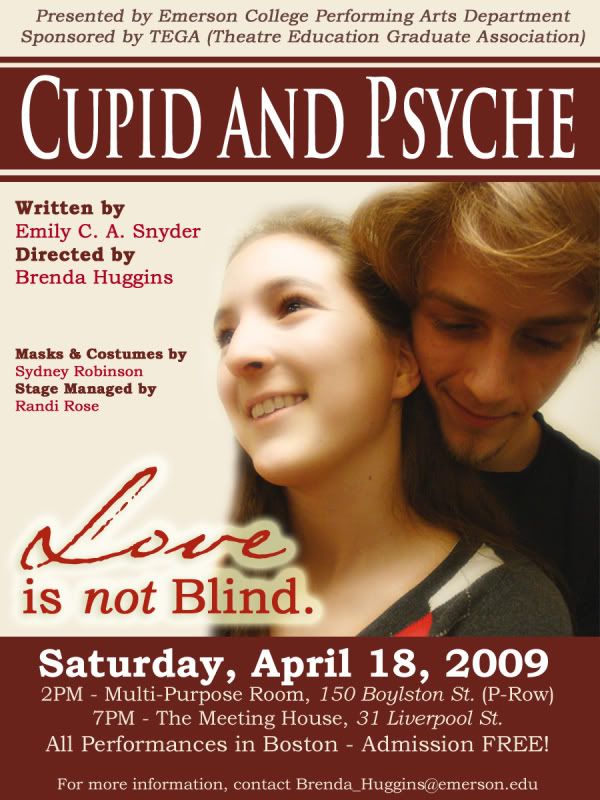
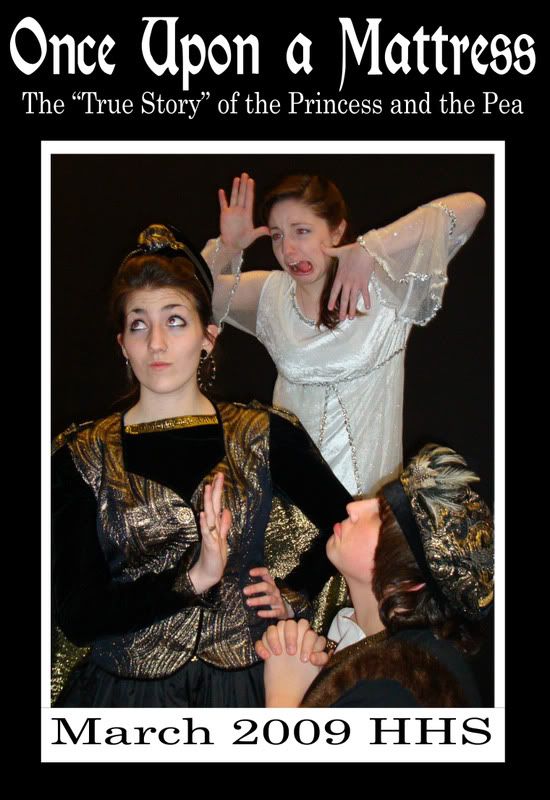
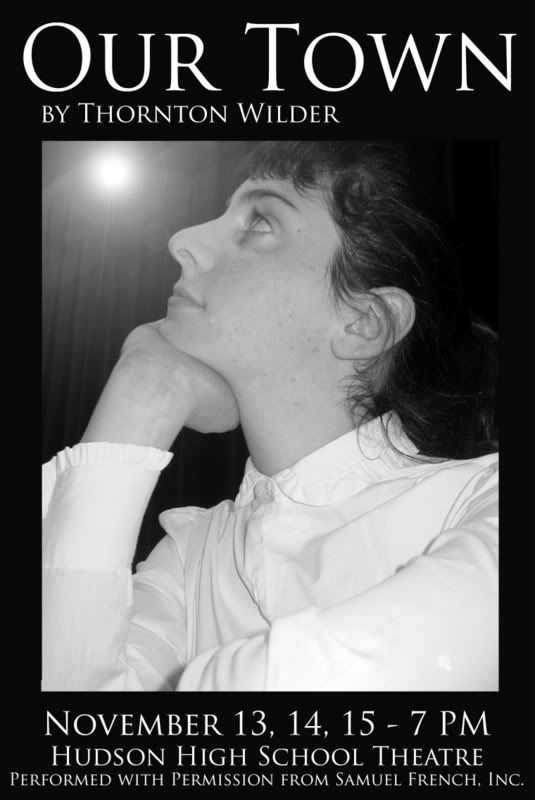
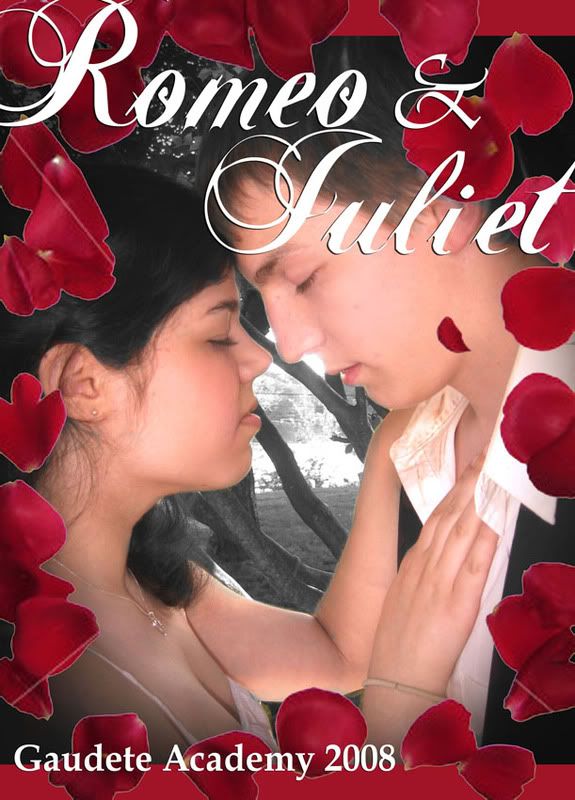
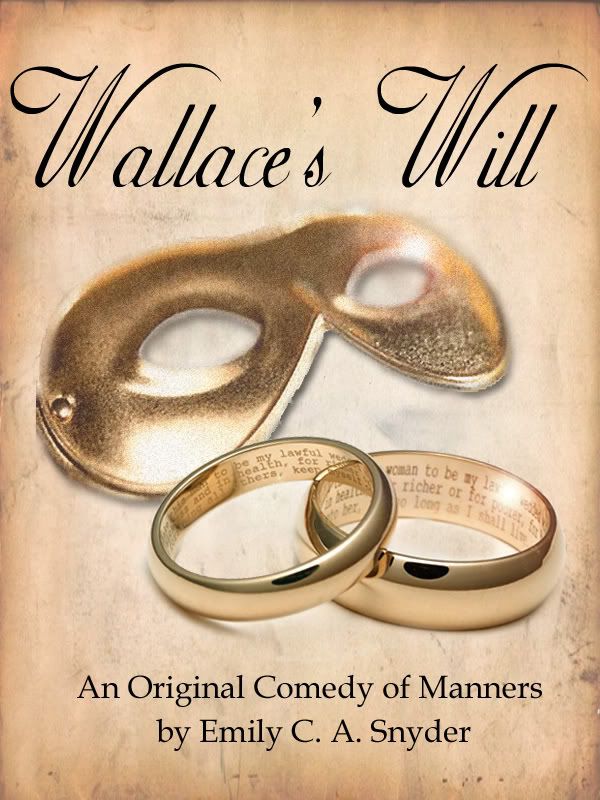

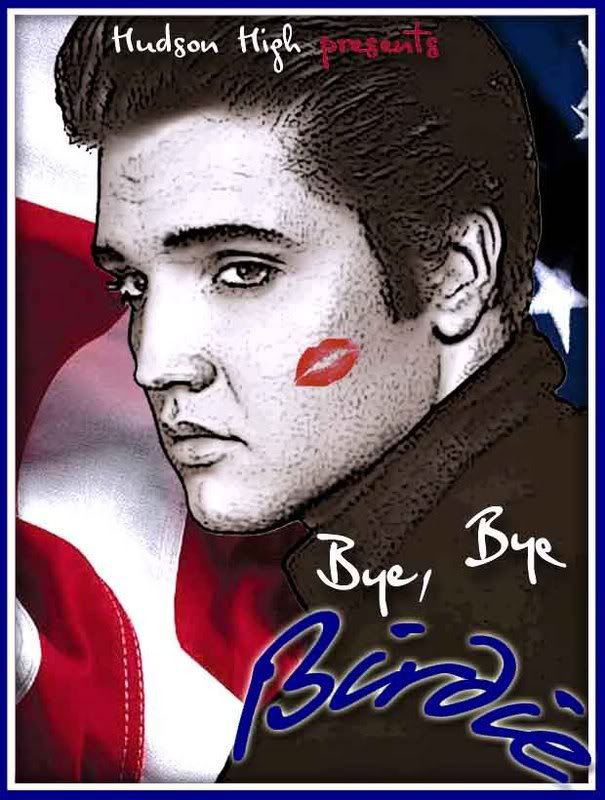
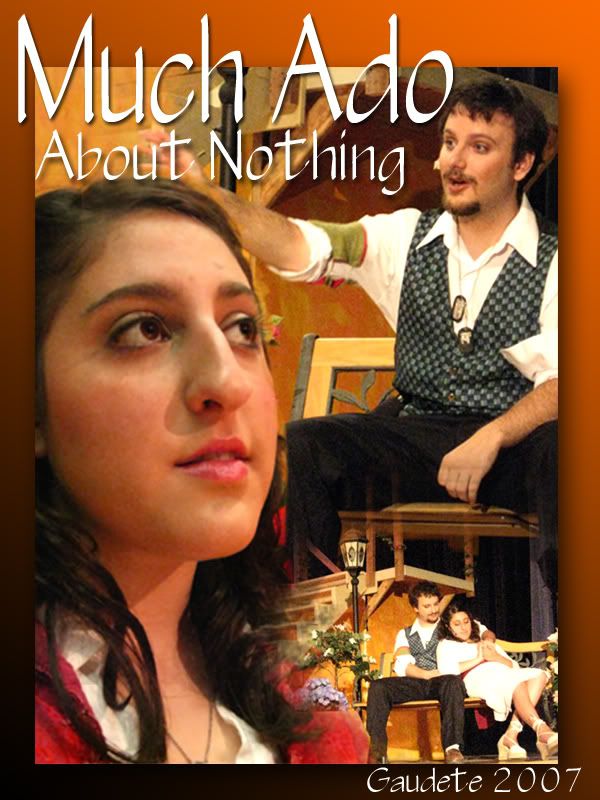
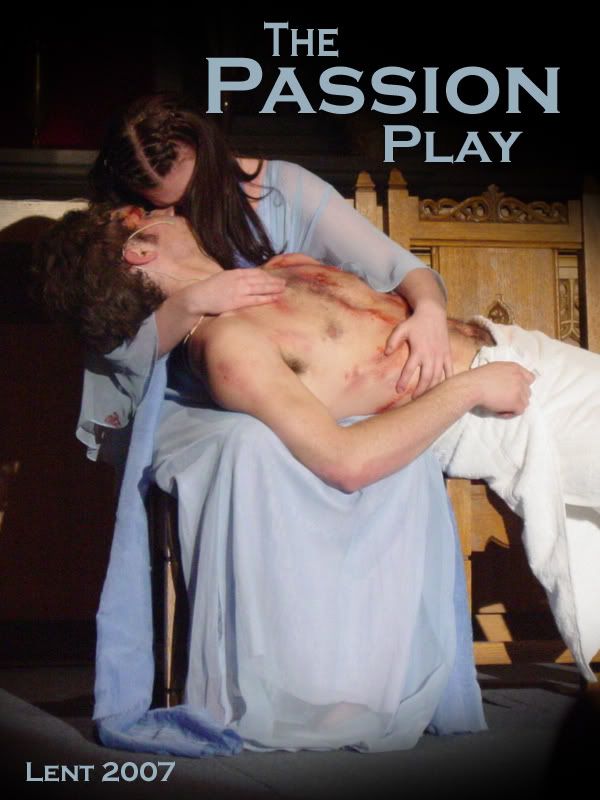
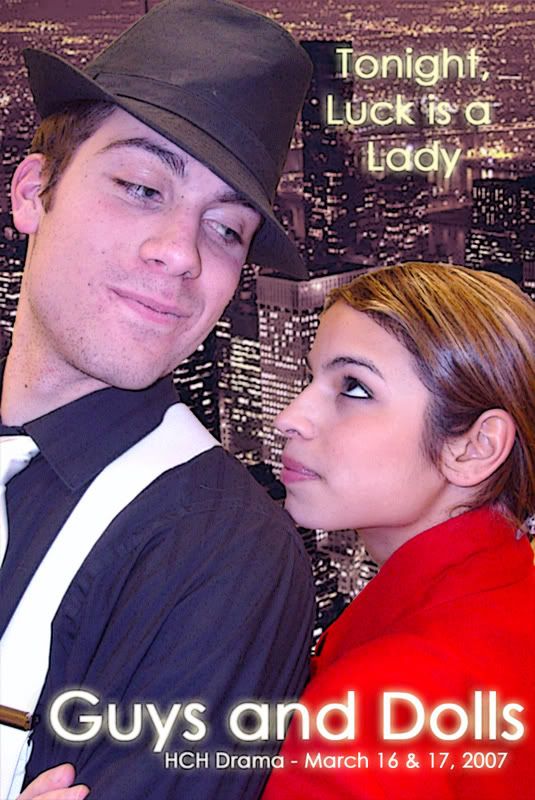
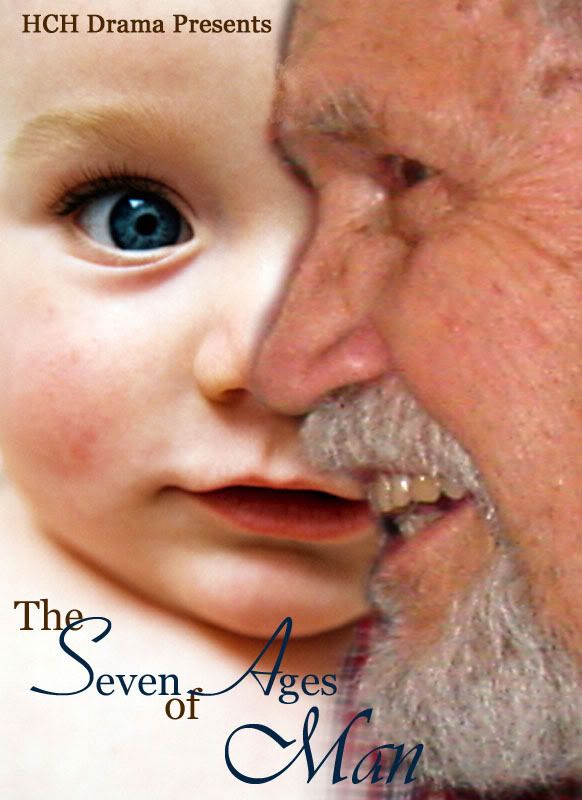

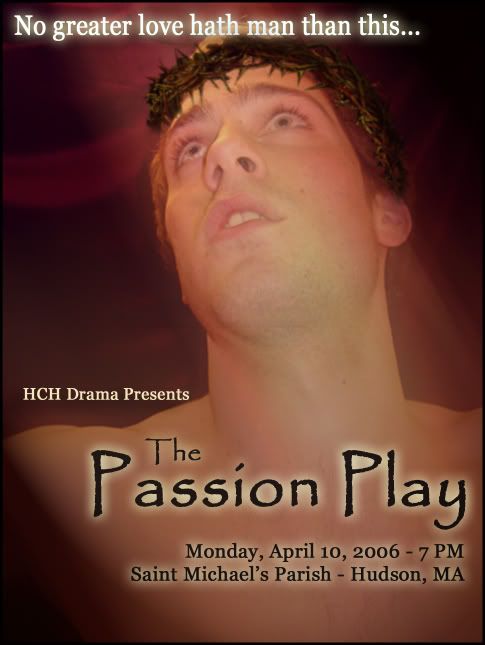
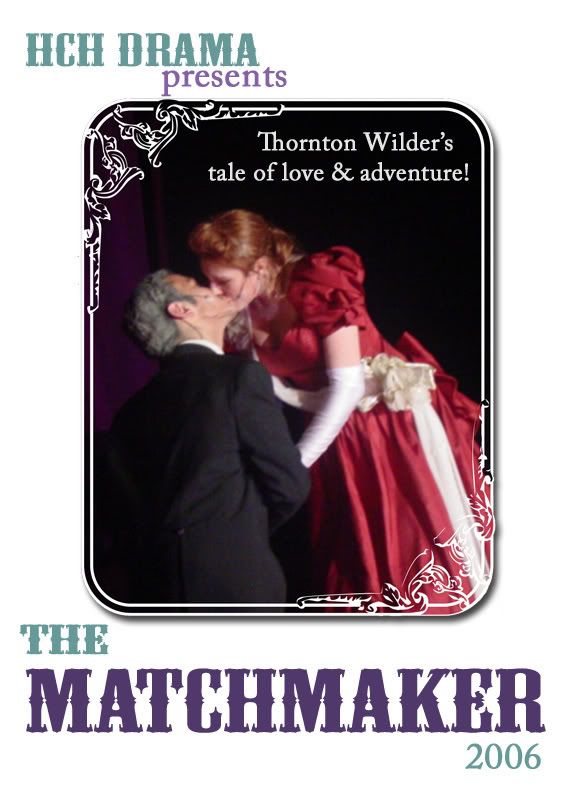






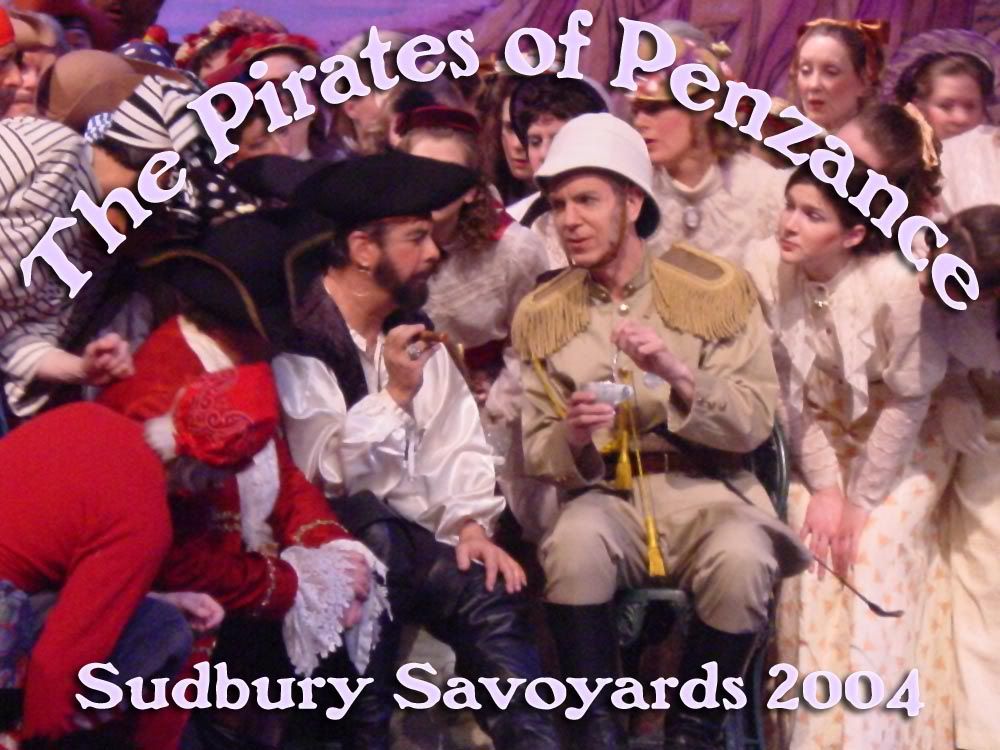
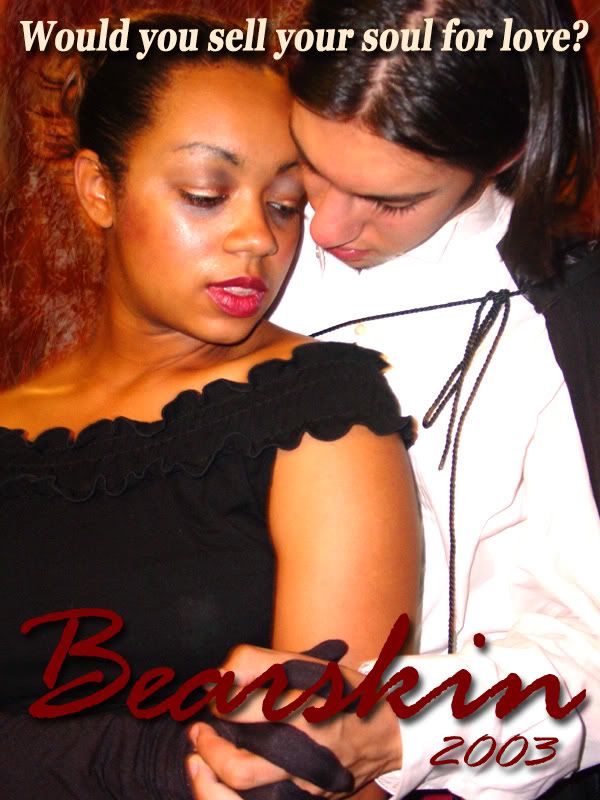
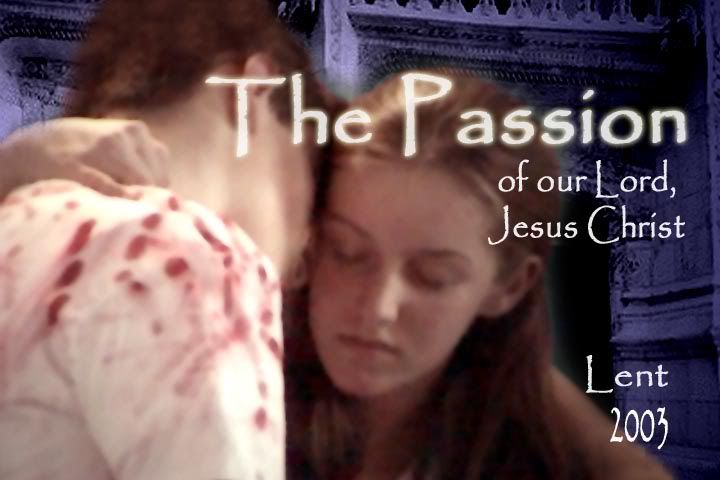

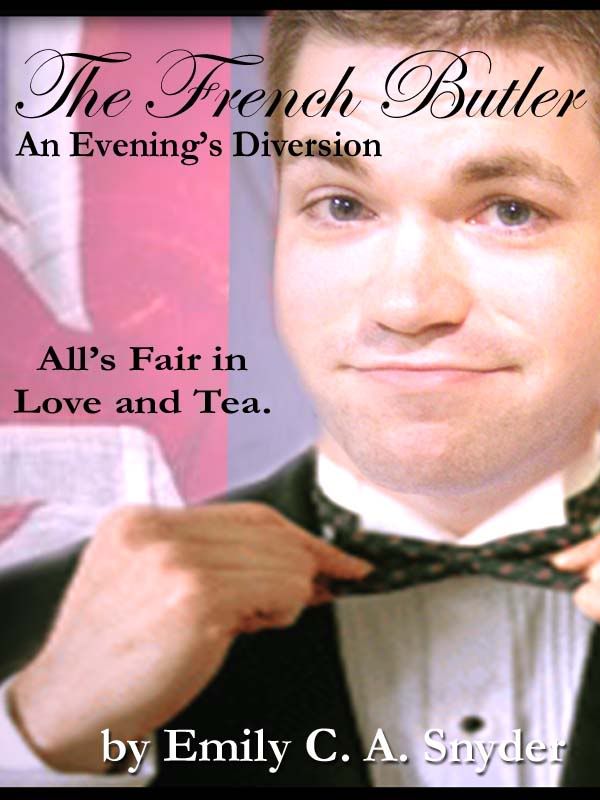
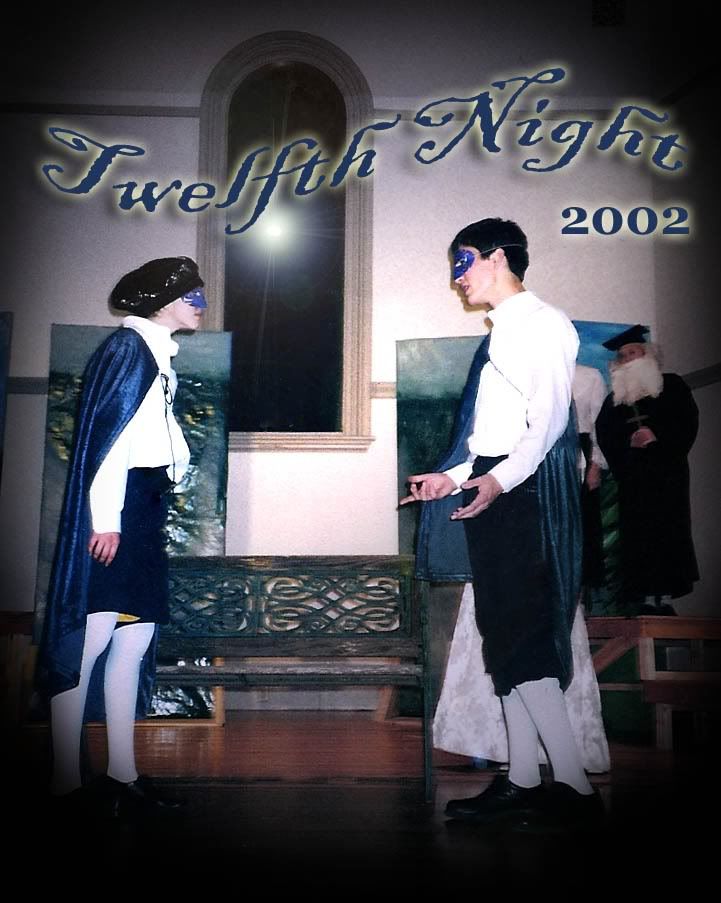
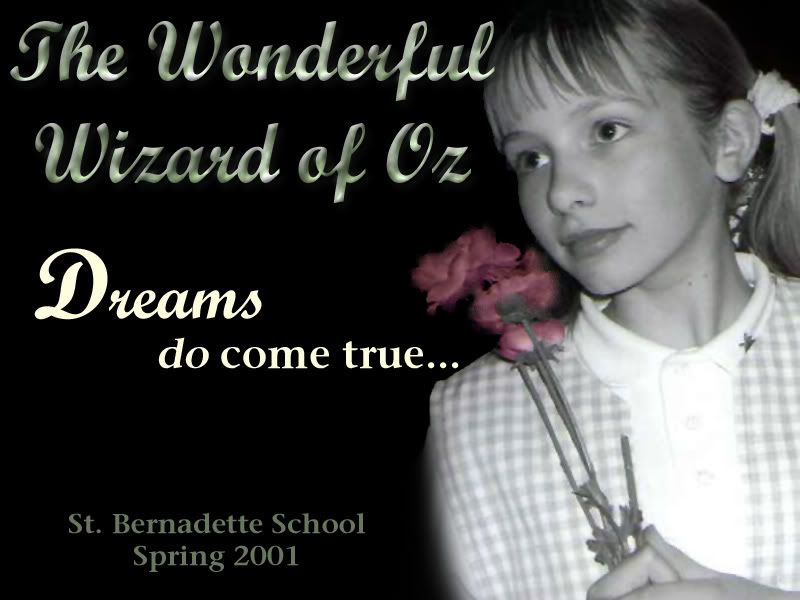
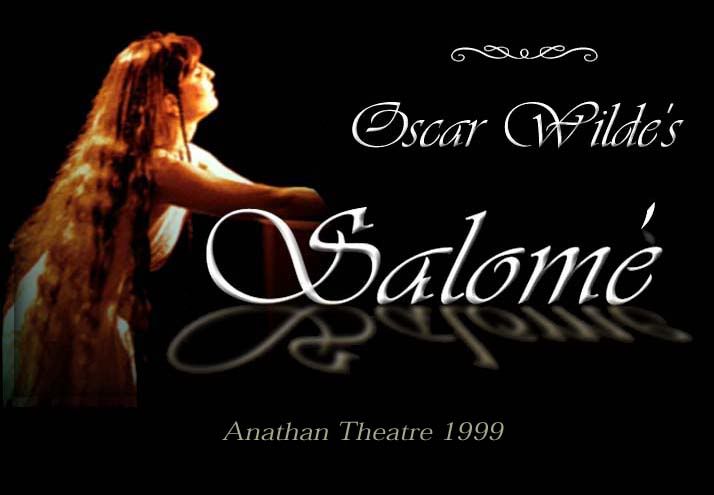


0 Comments:
Post a Comment
<< Home